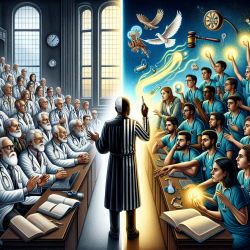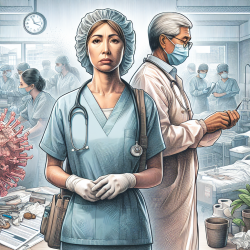Revolutionizing Medical Education: Lessons from "Medical Education for What?: Neoliberal Fascism Versus Social Justice"
In a world where medical education is often criticized for its rigid structure and lack of focus on social justice, the research article "Medical Education for What?: Neoliberal Fascism Versus Social Justice" offers a fresh perspective. This article challenges the traditional medical education system and advocates for a radical health pedagogy that links various global crises such as capitalist collapse, climate disruption, and racism.
The article highlights the story of Dr. Mona Hanna-Attisha, a pediatrician who courageously exposed the Flint water crisis. Her actions serve as a model for medical professionals to become "constructive troublemakers" who challenge social-structural obstacles. But how can practitioners implement these insights to improve their skills and contribute to social justice?
Key Takeaways for Practitioners
Here are some actionable steps practitioners can take to integrate the research findings into their practice:
- Embrace Critical Pedagogy: Educators should employ teaching methods that encourage students to question and challenge the status quo. This approach helps create a generation of medical professionals who are not only skilled in their field but also socially conscious.
- Focus on Community-Oriented Primary Care: Medical education should prioritize community health and social justice, aligning with the principles of the 1978 Alma Ata Declaration. This involves understanding the social determinants of health and advocating for policies that address these issues.
- Incorporate the Medical Humanities: By integrating the medical humanities into the curriculum, educators can foster empathy, compassion, and critical thinking in students. This holistic approach prepares students to handle complex social issues in their practice.
- Encourage Whistleblowing: Create a supportive environment where students and professionals feel empowered to speak out against injustices. Whistleblowing should be seen as a vital component of medical practice, not a career risk.
Further Research and Implementation
While the article provides a strong foundation for rethinking medical education, further research is needed to explore the practical implementation of these ideas. Practitioners are encouraged to delve deeper into the topics discussed and consider how they can apply these concepts in their own educational and professional settings.
To read the original research paper, please follow this link: Medical Education for What?: Neoliberal Fascism Versus Social Justice.










